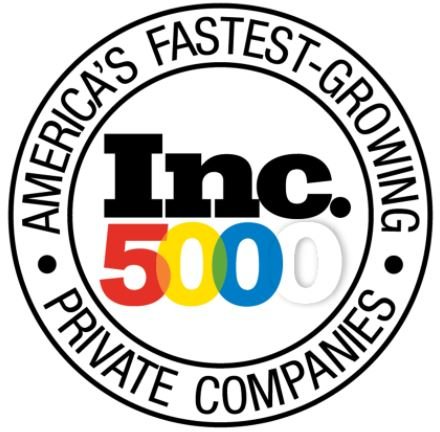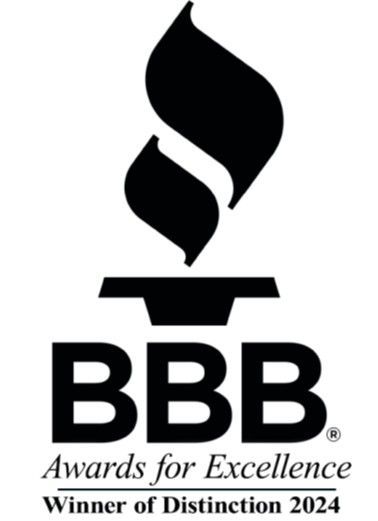Integrated Resource Management

INTEGRATED RESOURCE MANAGEMENT
Integrated Resource Management (IRM) service is a comprehensive solution that covers the entire lifecycle of an oil product or related chemicals. This includes procurement, logistics, delivery, inventory management, end-usage fluid testing, data management, and disposal. Our unique approach and processes allow us to focus on the Total Cost of Ownership (TCO) of petroleum and chemicals, thereby improving the quality of manufactured products while reducing our customers’ carbon footprint, equipment downtime, employee risk, and exposure. This eliminates the complexity and risk of handling oil products and chemicals through one integrated solution, making IRM a valuable choice for your business.
IRM is the concept of procuring all your fluids, maintenance, equipment, and environmental needs delivered by a provider who understands your operations. Our commitment to our customers is to provide the finest selection of quality products and services.
Integrated Resource Management is a cost-effective solution that saves you money, excessive paperwork and accounting tasks, downtime, keeps your timetable on track, and enhances your business bottom line. You get exciting deals and competitive pricing on oils, lubricants, and the grease you need to run your operations. By choosing IRM, you can significantly reduce your operational costs and improve your business's financial health.
Because of our purchasing power, we’ve carefully constructed our refiners for your consumer and industrial applications.
BENEFITS TO YOUR BUSINESS
- Saves you time and money with the expertise to help your business lower its bottom line and run seamlessly
- Eliminate multiple Vendors
- Keep your maintenance schedule on track
- Deliver all of your fuel and oils so you can keep your resources where you need them most
- Knowledge: We will aid you in selecting the right product for your business
- Lubricating Fluids: We provide you with any lubricants or fluid that you need – Motor Oils, Gear Oils, Transmission, Anti-Freeze, and Diesel Exhaust Fluids
- Disposal for Recycling: We handle the disposal of used oil filters and other materials for recycling
- Inspection: We assist you in increasing the life of your machinery and save money with on-site inspections of your Industrial facility
- Engineering: We can advise and fix your petroleum equipment to help you maintain fueling systems
- Oil analysis: Before you replace your equipment, we will take it to the lab for analysis to ensure you’re getting the most from your lubricating oils or fluids
- Petroleum Equipment: We would provide new hardware and full installation of tanks and equipment
- Better Your Team: We provide tutorials for your selected staff who deal with petroleum products and equipment
- Integrated Resource Management (IRM) is committed to your success and providing ALL of your petroleum needs.
- You’ll have dependable, friendly service, rapid response, and competitive pricing with our experts. We set the industry standard for value-added products and services to our customers.
Oils / Lubricants
Oil analysis is an internal snapshot of the overall health of the oil that keeps it running. It can also serve as predictive maintenance, uncovering correctable problems and preventing them from developing into major failures. Regular oil sampling and trend analysis allow you to:
✓ Maximize equipment reliability
✓ Extend drain intervals and equipment life
✓ Accurately budget for repair and replacement costs
✓ Plan and schedule downtime
✓ Identify problems before failure
Antifreeze/Coolants
Coolant analysis provides a comprehensive chemical evaluation of the coolant and a check of the overall condition of the cooling system. Identifying concerns early in the cooling system will uncover fixable problems before further damage occurs to the equipment, increasing overall reliability. Coolant testing and analysis can:
✓ Monitor cooling system conditions
✓ Reduce component failure
✓ Predict maintenance and repairs
✓ Increase uptime and productivity
Greases
Grease testing and analysis optimize a machine’s grease usage and improve equipment reliability. With our easy-to-use grease sampling technology, only one gram of grease is needed for analysis. Grease testing and analysis can:
✓ Identify contamination problems
✓ Minimize unplanned maintenance and downtime
✓ Extend equipment life
✓ Improve overall equipment reliability
Diesel Fuel
Diesel fuel testing and analysis is one of the most effective ways to simultaneously increase equipment reliability and fleet productivity. It can identify causes of component failures and contamination and monitor fuel quality and degradation.
Diesel fuel testing and analysis:
✓ Catch contamination concerns
✓ Predict maintenance and repairs
✓ Detect fuel degradation
✓ Monitor fuel quality
✓ Increase uptime and productivity
Industrial
With fluid analysis, you can predict maintenance, increase equipment reliability, and prevent small problems from becoming catastrophic failures.
Improve equipment reliability by testing these industrial components:
• Compressors
• Cooling Systems
• Gear Systems
• Hydraulics
• Standby Generators
• Turbines
Marine
High-performance expectations, various operating environments, and the constant presence of water make marine equipment susceptible and vulnerable to problems.
Improve equipment reliability by testing these marine components:
• Cooling Systems
• Engines
• Gear Systems
• Hydraulics
Transportation
Routine fluid analysis can give a commercial fleet the competitive edge that today’s transportation industry demands.
Contamination, wear, and overheating can damage engines and, when left unchecked, can halt operations in a heartbeat. Analyzing the condition of both the fluid and the unit identifies wear-causing contaminants' effects on component performance and reliability.
Improve equipment reliability by testing these transportation components:
Engines
Cooling Systems
Gear Systems
Oil and Gas
The number one enemy of the oil and gas industry is downtime. In an environment where equipment is expected to run 24 hours a day, 7 days a week under extreme conditions, downtime caused by equipment failure can quickly put you on time.
Fluid analysis can predict equipment failure before it happens and eliminate downtime.
Improve equipment reliability by testing components below:
• Compressors
• Cooling Systems
• Engines
• Gear Systems
• Hydraulics
• Turbines
Construction
Costly off-highway equipment is exposed to moisture, abrasives and temperature variants 24/Seven — yet expected to constantly perform at high levels.
By maximizing asset reliability and predicting maintenance, you can eliminate downtime and regain control of your operation schedule.
Improve equipment reliability by testing these off-highway components:
• Cooling Systems
• Engines
• Gear Systems
• Hydraulics
Power Generation
In the power generation industry, it’s important to make sure equipment is available when it’s needed. Monitoring conditions through routine fluid analysis allows you to avoid unplanned downtime and perform necessary maintenance-based
What is happening within the unit rather than on the hours in operation or on calendar days?
Improve equipment reliability by testing these power generation components:
• Compressors
• Cooling Systems
• Engines
• Gear Systems
• Hydraulics
• Turbines
Cooling Systems
The cooling system removes excess heat from the engine and maintains the engine’s optimal operating temperature. Analyzing the cooling system can catch contamination, monitor inhibitor protection levels and ensure fluid quality.
Improve cooling system reliability through these recommended tests and more:
• Antifreeze %
• Boil Point
• Corrosion Inhibitor
• Elemental Analysis by ICP
• Freeze Point
• Nitrite
• pH
• SCA Number
• Total Hardness
• Visuals
Gear Systems
With gear boxes, fluid analysis can ensure lubricant viscosity and additives are appropriate for the equipment’s speed and load, preventing excessive wear from occurring.
Through fluid analysis, wear problems can be caught early meaning a reduction in maintenance costs, increased equipment reliability and extended lubricant life.
Improve gear system reliability through these recommended tests:
• 24 Metals by ICP
• % Water by Crackle
• Acid Number
• Particle Count
• Particle Quantifier
• Viscosity
• Water by Karl Fischer
Engines
The four biggest engine killers are dirt, soot, fuel and coolant. Whether you’re in the power generation, off-highway, mining or transportation industries, routine fluid analysis can stop these killers in their tracks, increase uptime and optimize reliability.
Improve engine reliability through these recommended tests:
• 24 Metals by ICP
• % Fuel Dilution
• % Water
• % Soot
• Acid Number
• Base Number
• Viscosity
• Oxidation/Nitration
• Particle Quantifier
Compressors
Compressors are critical to operations like manufacturing lines, refrigeration and gas compression. But reliability depends on uptime.
The biggest concern and cause of downtime is airborne contamination from manufacturing environments which usually affects viscosity and causes oxidation.
Improve compressor reliability through these recommended tests:
• 24 Metals by ICP
• % Water by Crackle
• Acid Number
• Oxidation
• Particle Count
• Particle Quantifier
• Viscosity
• Water by Karl Fischer
Hydraulics
Regardless of the application, hydraulic systems are constantly exposed to the environment. If seals malfunction, abrasives, water and air can enter the system, causing irregular operations, shorter equipment life and a decrease in reliability.
Improve hydraulic system reliability through these recommended tests:
24 Metals by ICP
Acid Number
Foam Testing
MPC (Membrane Patch Colorimetry)
Nitration
Particle Count
Oxidation
Viscosity
Water by Karl Fisher
Water Separability
Turbines
Producing reliable energy is essential in the world today. Predicting your turbine maintenance can improve the bottom line of any energy generating unit and improve reliability.
Fluid analysis will maximize equipment performance while extending drain intervals and eliminate unexpected downtime.
Improve turbine reliability through these recommended tests:
24 Metals by ICP
Acid Number
Foam Testing
LSV (Linear Sweep Voltammetry)
MPC (Membrane Patch Colorimetry)
Oxidation
Nitration
Particle Count
RULER
RPVOT
Viscosity
Water % by Karl Fischer
Water Separability
Operating Territories
Throughout Texas
New Orleans, Louisiana
Santa Fe, New Mexico
Tulsa, Oklahoma
Kenosha, Wisconsin
Denver, Colorado
Springdale, Arkansas
St. Louis, Missouri
Scranton, Pennsylvania
East Newark, New Jersey
Jacksonville, Florida
Bridge Port, Connecticut
Tuscaloosa, Alabama
Richmond, Virginia
Merriam, Kansas
Belton, South Carolina
Chesapeake Bay, Maryland
Louisville, Kentucky
Charleston, West Virginia
Phoenix, Arizona
Wilmington, Delaware
Spring Valley, New York
Glendale, California
Boston, Massachusetts
Smithfield, Rhode Island
Fort Wayne, Indiana
Durham, New Hampshire
Twin Falls, Idaho
Jackson, Mississippi
Nashville, Tennessee
Springfield, Illinois
Raleigh, North Carolina
Quick Links
List of Services
-
Team PortalItem Link List Item 3
-
Customer Portal Write a description for this list item and include information that will interest site visitors. For example, you may want to describe a team member's experience, what makes a product special, or a unique service that you offer.
Item Link -
Request A Quote
Item Link List Item 2 -
Order Online Write a description for this list item and include information that will interest site visitors. For example, you may want to describe a team member's experience, what makes a product special, or a unique service that you offer.
Item Link -
Corporate Fleet Cards
Item Link -
Commodity PricesItem Link
- Write a description for this list item and include information that will interest site visitors. For example, you may want to describe a team member's experience, what makes a product special, or a unique service that you offer.
-
FAQsItem Link
-
Power Solutions Write a description for this list item and include information that will interest site visitors. For example, you may want to describe a team member's experience, what makes a product special, or a unique service that you offer.
Item Link -
Become A Customer Write a description for this list item and include information that will interest site visitors. For example, you may want to describe a team member's experience, what makes a product special, or a unique service that you offer.
Item Link
Copyright © 2025 Atlantic Petroleum & Mineral Resources, Inc | All Rights Reserved. Terms & Conditions Legal & Privacy Policy


